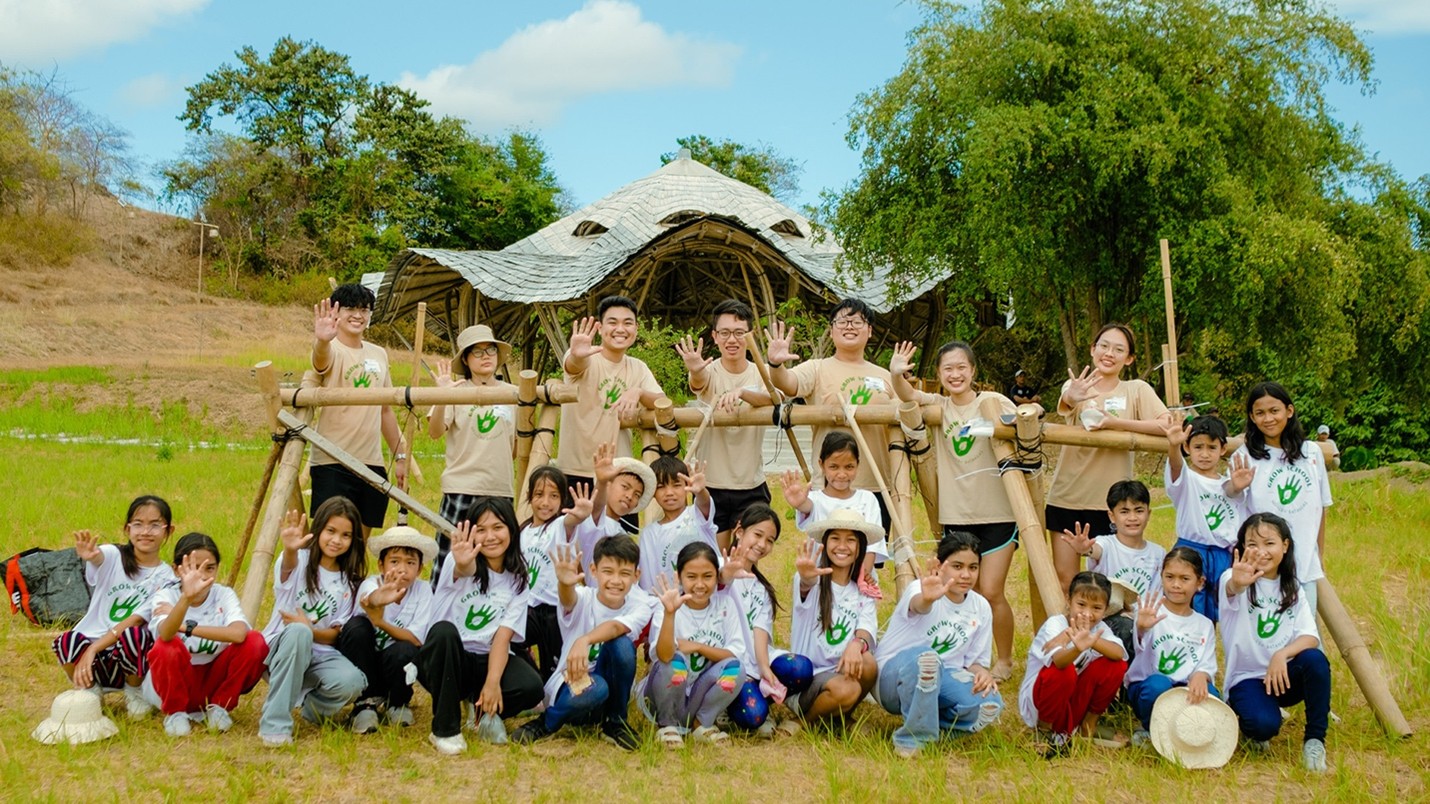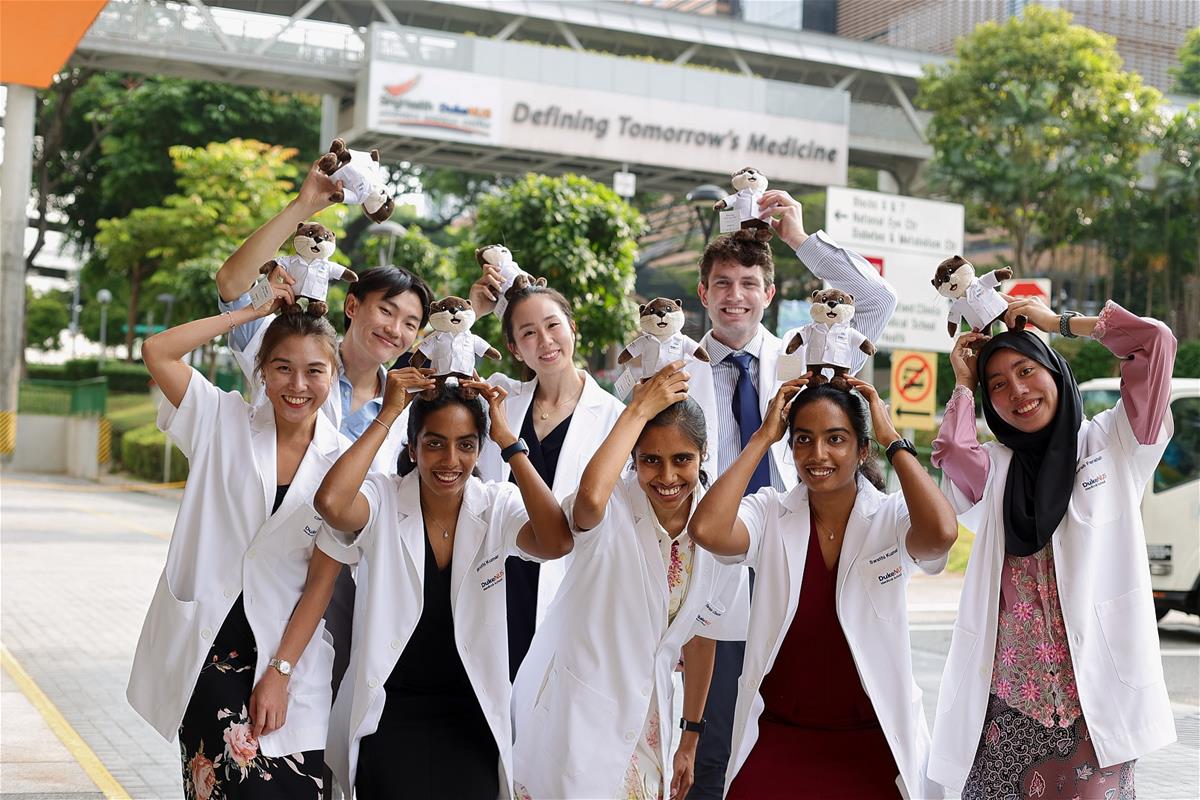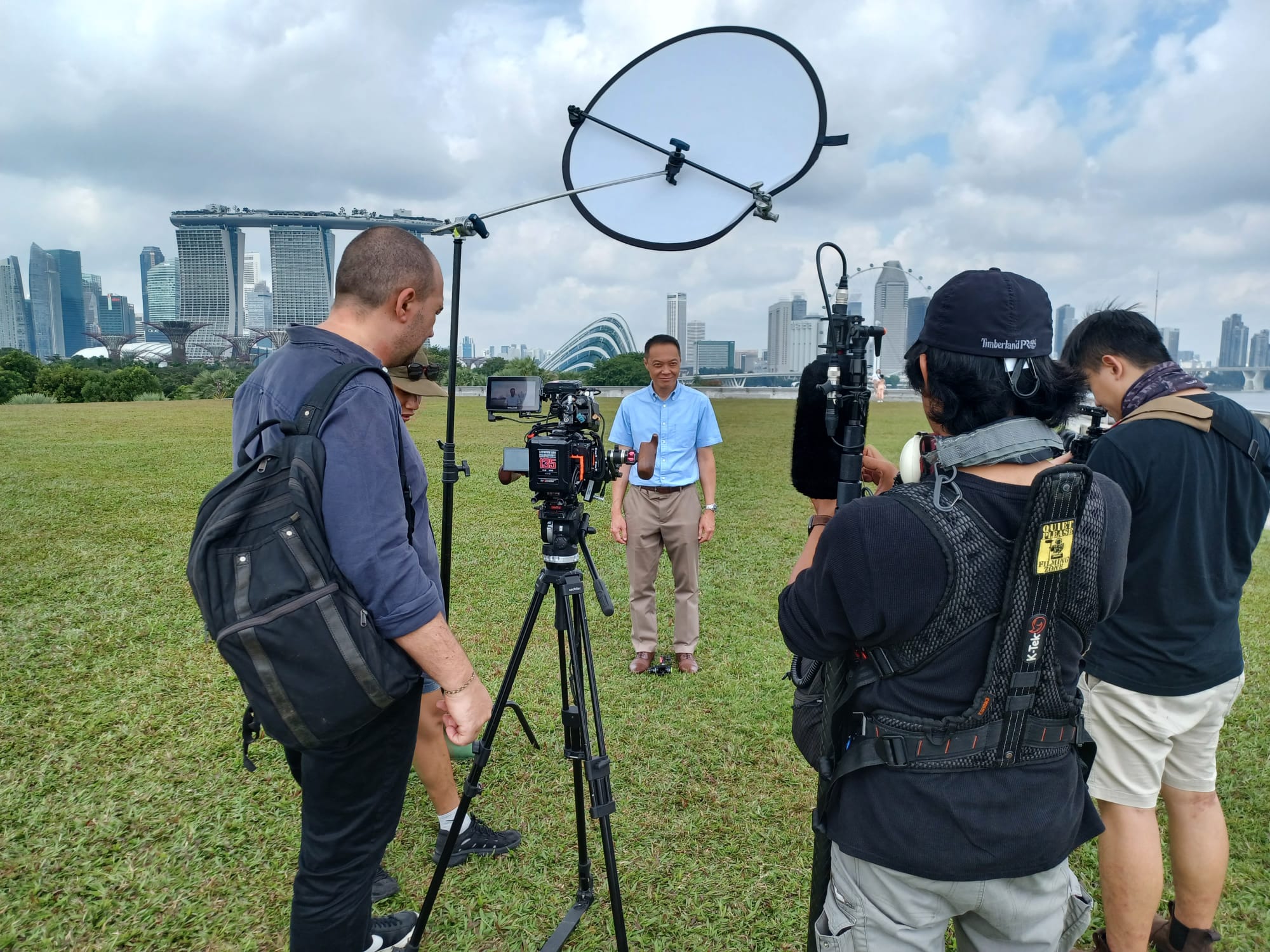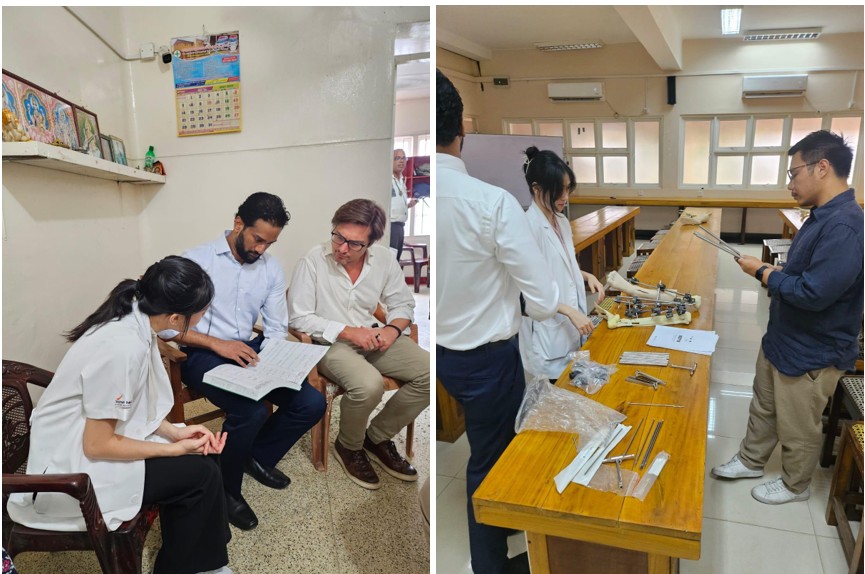The University’s flagship sustainability festival, NUS Sustainability CONNECT, returned this September with close to 40 events bringing together libraries, health centres, students and researchers in a shared mission to reimagine green living. From showcasing solar innovation for heritage spaces to sparking youth movements in bamboo design and championing healthy eating with upcycled grains, the festival highlighted how sustainability can be lived every day across disciplines and communities.
This year’s CONNECT welcomes partners such as NUS Libraries, NUS College (NUSC) and University Health Centre (UHC), all of which are organising events to engage and inspire the broader NUS community on sustainability efforts.
Walking the talk in sustainability: NUS Libraries’ guided tours and solar panel exhibition
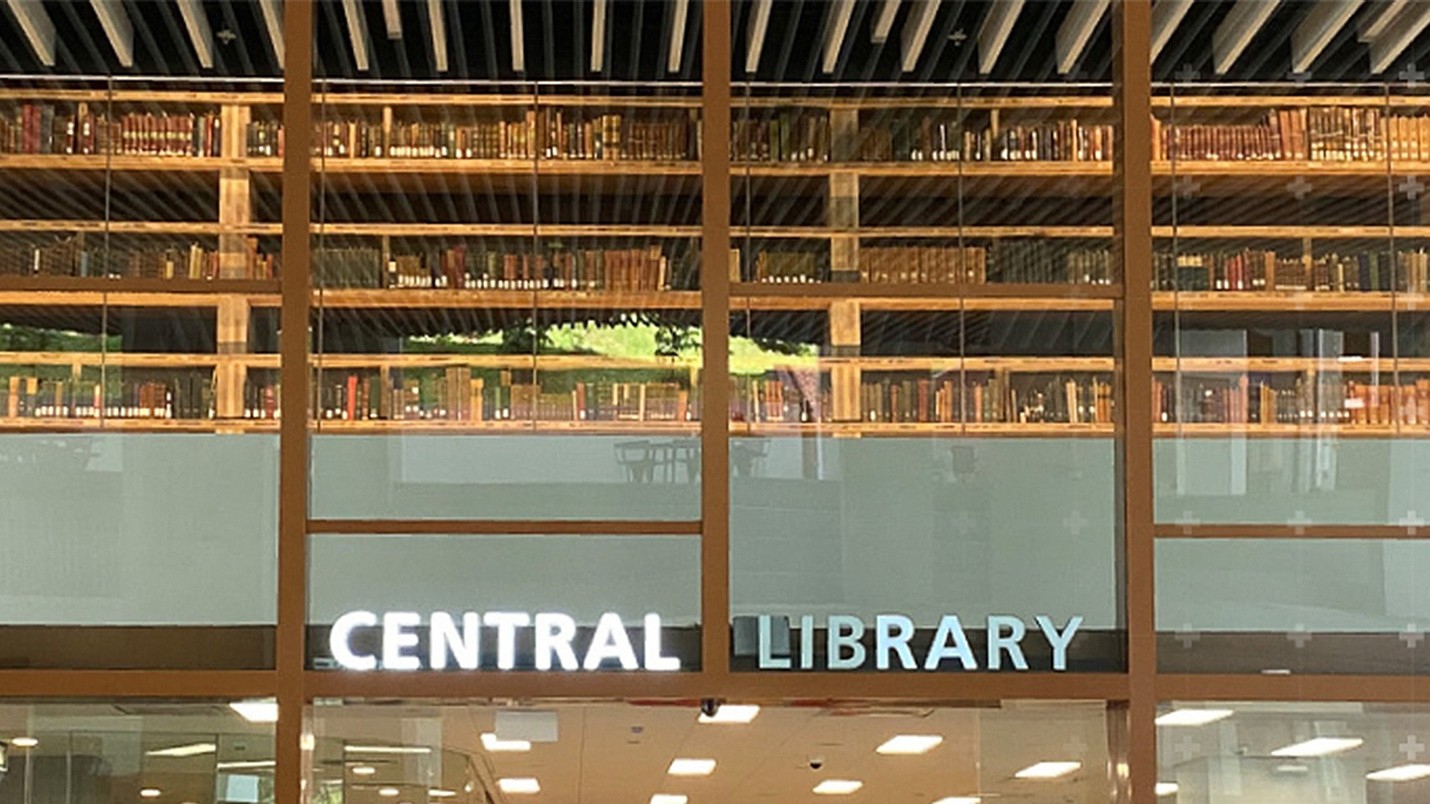
Did you know that BookBridge on Level 2 of NUS Central Library was among the first structures in Singapore to use tropical mass engineered timber, a renewable and sustainable building material?
Choosing eco-friendly construction materials is just one of the many ways NUS Libraries is making sustainability a daily reality. To showcase its efforts, NUS Libraries will be conducting a guided tour of the Central Library on 17 September 2025 to share how it is walking the talk in sustainability, including reducing its carbon footprint in daily operations.
In recent years, NUS Libraries has been steadily developing its four sustainability pillars – green libraries; green resources; green programming; and green digital and innovation – in support of the Singapore Green Plan 2030 and the United Nations' Sustainable Development Goals.
Beyond this, NUS Libraries also hosted a guided tour to a garden that was set up on campus in the early 1980s on 24 September. This historical garden, which is under the care of the Department of Biological Sciences, houses legacy plants, such as the cycads, which have been around in the garden since its founding years. Rarely open to the public, the garden offers a glimpse into the space that supports the department’s outreach and teaching activities.
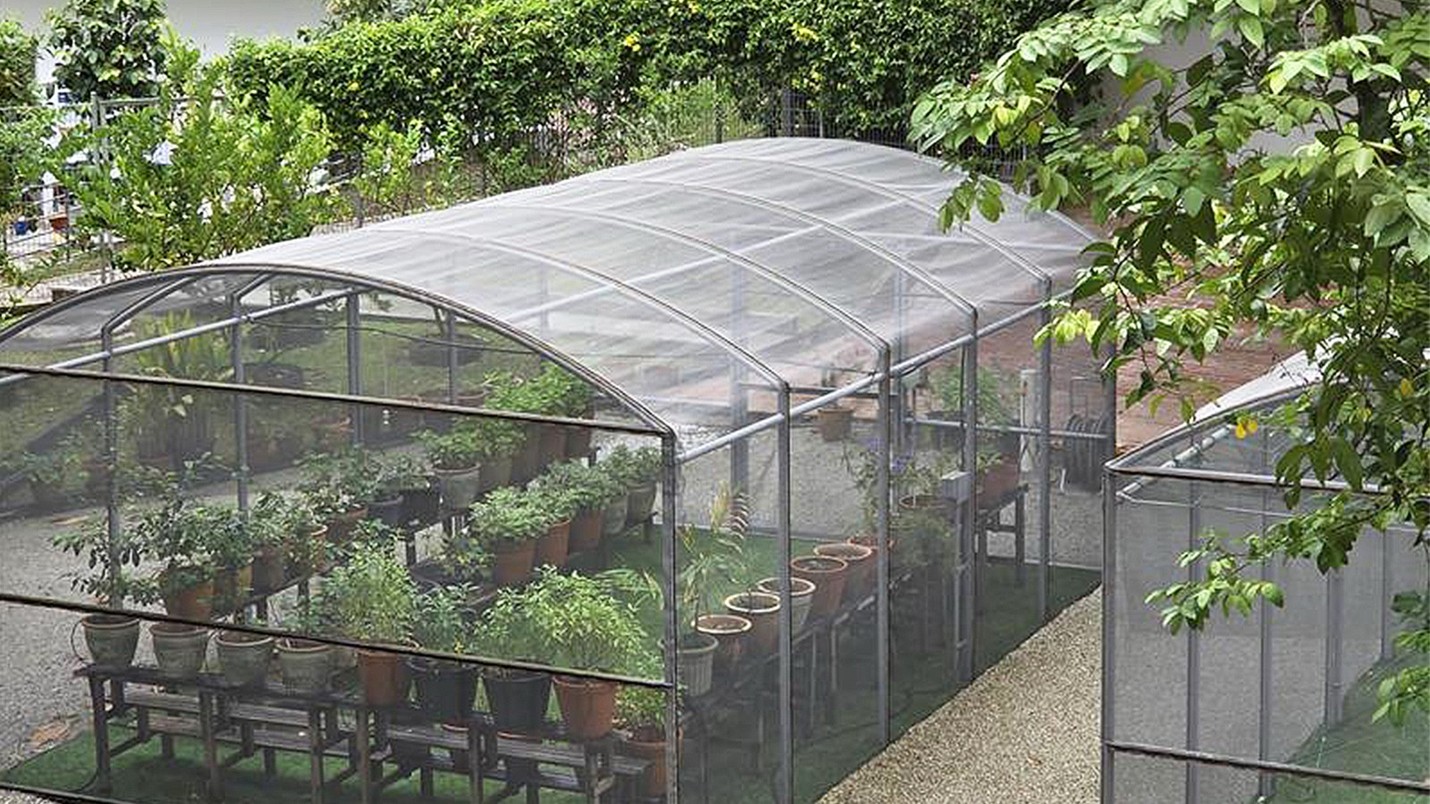
Cared for by the Department of Biological Sciences, the garden houses legacy plants dating back to its founding in the early 1980s // Credit: NUS
In addition, NUS Central Library is running an exhibition – Solar Energising Heritage: Coloured Solar Panel Development for Historical Shophouses—from now till 6 October 2025. This collaborative project with the Solar Energy Research Institute of Singapore (SERIS), NUS Museum and NUS Baba House features custom-designed coloured Building-Integrated Photovoltaics (BIPV) panels developed for NUS Baba House, using SERIS’ unique dotlism pattern technology.
Going forward, NUS Libraries is committed to paving the way in advancing sustainability in teaching, learning and research.
Inspiring change: Student-led sustainability initiatives at NUS College’s Impact Festival
Committed to delivering interdisciplinary education, NUSC presented the Impact Festival on 17 September—a vibrant showcase of student projects from the Impact Experience programme. This is a capstone course where students collaborate with communities in Singapore and across Southeast Asia to drive meaningful social change.
Given that sustainability is inherently interdisciplinary, it is no surprise that a number of these projects focused on sustainability-related themes such as transforming food waste management, promoting sustainable tourism, protecting animal welfare, restoring coral reefs and cultivating sustainable agriculture.
One notable example is a project led by Team Bayanihan (which means unity in Tagalog) comprising seven NUSC students. For decades, bamboo has been viewed as the poor man’s timber in the Philippines. To change this mindset, the team developed a unique bamboo-based curriculum to help Filipino youth appreciate this sustainable resource that is readily available in their own backyard.
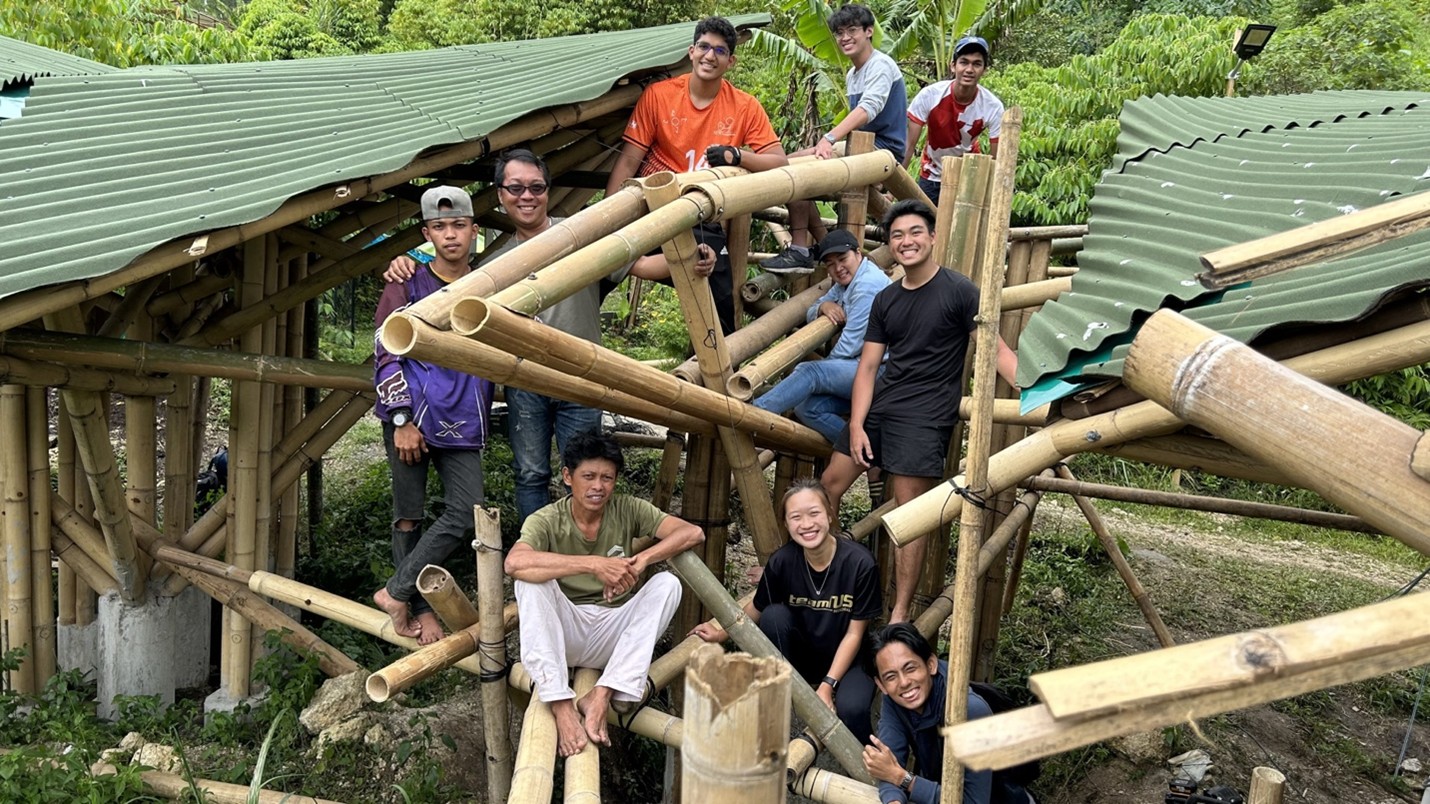
Members of Team Bayanihan at a 10-day workshop conducted by a non-governmental organisation, Bamboo Bootcamp, in Davao del Sur, the Philippines, where they learnt the end to end process of working with bamboo, from harvesting and planting, to design and construction // Credit: NUS
In partnership with Grow School Philippines, Team Bayanihan conducted three workshops in Nasugbu, Batangas, teaching hundreds of young people the art of bamboo weaving and the science of structural design. The goal was to showcase bamboo’s versatility, both as a material for crafts and a medium for constructing larger structures, to the next generation of Filipinos. Through this, Team Bayanihan hopes to inspire youth across the Philippines to embrace the beauty and utility of bamboo in building a more sustainable future.
Championing sustainability through healthy eating: UHC’s sustainable granola workshop
Eating healthily and supporting the planet can go hand in hand, and UHC is keen to demonstrate how.
It conducted a sustainable granola workshop on 19 September to share with participants how spent grains can be upcycled into nutritious granola. Guided by experts in the sustainable food innovation sector, participants will not only create and sample their own sustainable granola, but also take home a recipe kit on how to make these wholesome grains.
The complimentary workshop for NUS staff, which was fully booked within a day, is part of the Centre’s Feel Good Friday series, which explores practical ways for the NUS community to adopt greener habits while maintaining a balanced diet and nutrition.
Encouraged by the strong response, UHC plans to offer more workshops to promote sustainable habits and healthy eating across the NUS community.
To learn more about NUS Sustainability CONNECT or register your interest for the above events, please click here.




